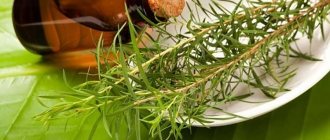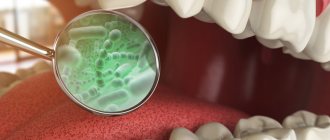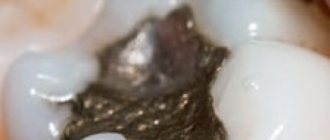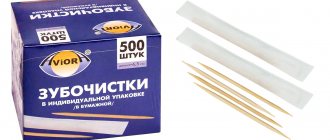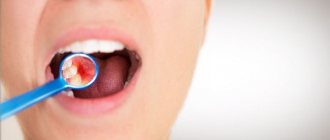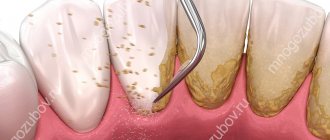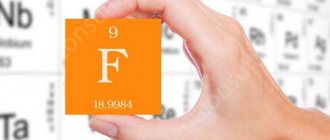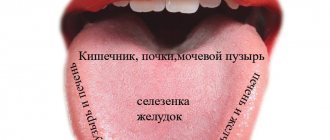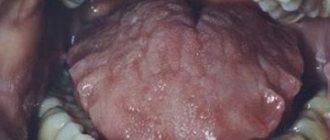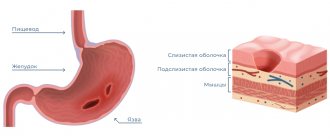Have you ever paid attention to the promises of mouthwash manufacturers? “Our product will destroy 99 percent of bacteria”, “Your breath will always be fresh”, “In just half a minute you get teeth protection from caries.” Sounds tempting and promising, right? Can such promises lead to any problems?
It would seem, where do so many people get caries? After all, it’s enough to buy a bottle of magic solution and forget about such a terrible disease forever. However, mouthwash can be harmful. This is what I would like to talk about with the readers of our blog today.
The most obvious facts that should be studied before you start using such a tool are below.
Destruction of bacteria
Unfortunately, we are talking about all types of bacteria, without dividing into good and bad. Yes, 99 percent of killed microorganisms is not a myth, but a harsh reality. But the microbial background in the mouth must be maintained in balance if you want to avoid any inflammation or disease.
Here we use an antibiotic as a comparison. When taking such medications, the doctor always prescribes probiotics, which are designed to restore the balance of bacteria in the intestines and eliminate the side effects of the drug in the form of bloating, diarrhea, and constipation. Now imagine what happens in your mouth due to the daily use of mouthwash. Beneficial bacteria die, you do nothing to protect them or replenish losses.
Why do you need mouthwash?
Compared to a toothbrush and toothpaste, thanks to its liquid form, the rinse is able to reach hard-to-reach corners of the mouth, which allows you to wash away food debris, including from the interdental space. The antibacterial properties of rinses make it possible to destroy bacteria that cause caries and gum disease on the surface of the gums, tongue, cheeks, and palate. Thanks to this, fresh breath lasts longer after using a mouthwash than after using toothpaste alone.
Rinse aid functions:
- ensuring long-lasting fresh breath;
- cleansing the oral cavity from food debris and bacteria;
- prevention of dental problems (bleeding gums, caries, etc.);
- teeth whitening.
The severity of these effects depends on the type and composition of the rinse aid.
Main types of rinse aids
There are two types of rinses: cosmetic and medicinal.
Cosmetic rinses
Cosmetic rinses are relatively harmless. There is no particular benefit from such products, they also do not cause harm - unless you become allergic to any component. They have an exceptional deodorizing effect - it freshens the breath and gives it a pleasant smell. You can safely buy them at any pharmacy, choosing them according to the most pleasant smell, color or taste for you.
Whitening rinses - contain oxygen and hydroxyapatites, which help lighten the enamel. You should not expect to get an effect similar to professional whitening with their help. Among the side effects, hydroxyapatites can cause individual intolerance. If you have individual intolerance, it is better not to take risks and entrust teeth whitening to professionals.
Therapeutic rinses
Therapeutic rinses remove bacterial plaque, help in the treatment of caries, gingivitis, periodontitis, strengthen tooth enamel and normalize blood circulation in the gums. They contain medicinal substances, so they are used only as prescribed by a doctor! Otherwise, there is a risk of not only not improving the condition of the oral cavity, but also aggravating some problems.
Anti-plaque rinses - active ingredients destroy microorganisms and prevent tartar from covering the teeth again.
Anti-caries rinses - orthodontists advise when hygiene is difficult, when the risk of caries increases. For example, when wearing braces.
Anti-inflammatory rinses - actively kill bacteria and help relieve inflammation.
Dry mouth
Yes, this is also a reality - mouthwashes (especially those containing alcohol, chlorhexidine or other antiseptic) can cause the formation of a real Sahara desert in your mouth.
But it is in a dry environment that harmful bacteria feel best; beneficial microorganisms cannot tolerate such conditions and die. And we have known for a long time that a dry mucosal surface leads to serious problems with teeth and provokes the appearance and development of carious areas. Without saliva in sufficient quantities, there is no complete protection against caries!
Relevance
In recent years, there has been a tendency towards an increase in the incidence of gonorrhea, which is associated with an increase in unprotected sexual intercourse, especially among homosexual men. The study authors noted that in Australia alone, the number of new cases of infection doubled from 6,892 to 11,508 over the past 5 years, with 70% of cases occurring among homosexual men. The growing antibiotic resistance is also noteworthy. In the context of the above, the development of new preventive measures is necessary. Interestingly, as early as 1879, long before the advent of antibiotics, Listerine manufacturers claimed that it could be effective in patients with gonorrhea, but to date no studies have tested this hypothesis.
Rinse aid “kills” the effect of active toothpaste.
The one that contains active substances designed to treat and protect your teeth and gums. You paid money for them, and then neutralized all the active components with your own hands. How? Yes, just immediately after brushing your teeth, they rinsed them with a harmful product. So to speak, they burned everything and everyone.
Remember that the people most susceptible to tooth decay are those whose mouths have minimal (or no) beneficial bacteria in their mouths and are as dry as the desert. And no, it’s not enough to just drink cool, clean water. We are talking about saliva, which contains all the necessary minerals to strengthen the enamel. It is saliva that is the natural enemy of caries. What if she doesn't exist? It's like leaving a military base without guards overnight, right?
Is mouthwash beneficial or harmful?
Few people pay attention to the composition of mouth rinses. But in vain. They may contain harmful substances that will damage both tooth enamel and gums. And this is already fraught with very expensive dental consequences.
Composition of mouth rinses
- One of these harmful substances is triclosan - it kills not only harmful but also beneficial bacteria. It has a direct effect on the muscles of the dental cavity, reducing their activity, which leads to such an unpleasant phenomenon as atrophy. With frequent use of triclosan, some pathogenic bacteria become resistant to its action, which reduces the benefit of its use to zero.
- Alcohol can irritate the mucous membranes and cause dry mouth.
- The next element is fluorine . Today it has become overused. Fluoride is added in huge doses to toothpastes and mouthwashes. And everything in life, including useful things, as we know, is good in moderation. Of course, fluoride is good for teeth, but only in small quantities. Unfortunately, the advertising industry is silent about this important fact. Excess fluoride destroys tooth enamel. And this leads to yellowing and darkening of the teeth and the occurrence of fluorosis - the enamel becomes fragile, the teeth become covered with red or brown spots, defects in the dental tissue appear and even the formation of holes.
- Calcium - in excessive quantities can cause nausea, vomiting, and constant thirst. Increased calcium intake is strictly not recommended for pregnant women, because... increases the risk of birth injuries and leads to placental calcenosis, which interferes with normal fetal nutrition.
- Neovitin is not recommended for pregnant and lactating women and people with carbohydrate metabolism disorders.
- Calcium quote - Allergic reactions sometimes occur: rash, itching, hives, stomach pain, nausea, flatulence, diarrhea or constipation.
- Chlorhexidine - with frequent use of chlorhexidine, brown or black spots appear on the teeth - the amount of plaque and tartar will increase. Dryness and burning in the mouth also occurs.
- Cetylpyridinium chloride is contraindicated during pregnancy and breastfeeding.
To use or not to use whitening and cosmetic rinses is up to you. It is important to remember that beneficial substances will not be able to penetrate behind the plaque film on their own, and therefore, without thorough hygiene, the use of any rinses is virtually useless. Therefore, they can only be used after thoroughly brushing your teeth with toothpaste.
Therapeutic rinses can help treat some gum inflammation if used strictly as recommended by your doctor. If you want to protect yourself from unpleasant consequences, ask your dentist to recommend an effective and safe product, do not use it too often and do not exceed the concentration specified in the instructions. If the medicinal rinse prescribed to you causes extremely discomfort, it is better to tell your doctor.
Number of views 2,524
So what should I do?
The main rule is not to use oral hygiene products on the advice of friends or by buying into bright and promising advertising. Before buying a mouthwash, consult your dentist. Now on the market you can find many safer and healthier solutions that will really help in home care, and will not draw a guiding arrow towards the dental clinic.
And yes, a more profitable and useful alternative to mouthwash is an irrigator. It will last a long time, get rid of stuck food particles and wash away plaque without disturbing the beneficial microflora.
Study design
The GONE clinical randomized trial included 196 same-sex men who tested positive for gonorrhea in the mouth or throat. All patients were followed up at the Melbourne Sexual Health Center from May 2015 to February 2016.
Fifty-eight patients were recruited for the study and had positive cultures from the posterior oropharynx and/or tonsils immediately before mouth rinse. Their average age was 27 years and they had an average of 6 sexual partners in the past 3 months.
33 men were randomized to rinse and rinse with Listerine and 25 to rinse with saline for 1 minute.
Mouthwashes for hypersensitive teeth
- ELMEX “Sensitive Plus. One of the highest quality rinses for hypersensitive teeth, allowing you to solve the problem in the shortest possible time. In addition to amino fluoride, the solution contains a polymer that forms a protective film on the surface of the enamel.
- LACALUT (Lakalut) "Sensitive". German quality product with a good composition. Chlorhexidine and aluminum lacatate reduce bleeding gums, but a course of use lasting more than 3 weeks is not recommended.
Rinses used for periodontitis and gingivitis
- LACALUT (Lakalut) "Aktiv" (Asset). German rinse with chlorhexidine, fluoride and aluminum lactate - a substance that reduces bleeding gums. The product is very effective, but it can be used for a maximum of 3 weeks in a row. 300 ml. the solution will cost approximately 220 rubles.
- Paradontax (Paradontaks). An English product with chlorhexidine and a fluoride compound that strengthens teeth. Use is allowed for 3 weeks in a row: longer use is fraught with the development of dysbacteriosis. 300 ml. solutions cost about 200 rubles.
- PRESIDENT (President) “Profi”. Italian remedy with plant extracts and chlorhexidine. It has a classic composition for the treatment of gum diseases. Use for more than 3 weeks without interruption is not recommended.
- LISTERINE (Listerine). Italian solution with methyl salicylate (anti-inflammatory). Since the fluoride concentration is low (100 ppm), the product will protect against caries worse than previous samples.
- Asepta is a Russian product with strong antiseptics, as a result of which its use is allowed only for 2 weeks in a row. The solution contains benzydamine, a substance that causes a feeling of numbness, so the mouthwash is recommended for the treatment of stomatitis, since mouth ulcers are very painful. 150 ml. the solution is sold at a price of 135 rubles.
- Colgate Plax (Colgate Plax). A Russian rinse with potassium salts in combination with citric acid, which reduces tooth sensitivity, sodium fluoride, which protects against caries, and cetylpyridinium chloride, used to reduce gum inflammation (if there are wounds or ulcers in the mouth, it is better to refrain from purchasing the product, since this component inhibits healing process). When used for more than 2 weeks in a row, irritation of the mucous membrane and allergies may occur.
- GLISTER Amway (Glister Amway). Not the best German product, containing only antiseptic and alcohol. It can be used exclusively for gum inflammation, and even then for no more than a couple of weeks. Despite all its disadvantages, the drug costs more than everyone else: 50 ml. will cost more than 400 rubles.
Mouthwashes prescribed for chronic gum inflammation
- MEXIDOL (Mexidol). A Russian product with an anti-inflammatory component called Mexidol and a complex of amino acids that moisturizes the mucous membrane and increases its immunity. The product can also be used as a preventative to reduce gum inflammation. It is prescribed to people wearing dentures and suffering from stomatitis.
- Forest balm. The composition contains many herbal components (St. John's wort, chamomile, celandine and many others), but in addition to them, the solution contains fragrances and various chemical compounds, including triclosan (an effective substance that reduces the inflammatory process much better than herbal remedies). But triclosan can only be used after deposits have been removed. The rinse aid is relatively inexpensive: 250 ml of solution costs about 100 rubles.
- SPLAT (Splat) “Complete” (Complete). A Russian inexpensive product (the price of 340 ml of solution is approximately 115 rubles) with a weak effect. It does not contain alcohol or fluorine compounds, but it does contain polydon, which helps dissolve plaque. The product is purely preventive: it will not cope with the removal of inflammation and strengthening of teeth. But it does not contain antibiotics, so it can be used for a long period of time.
What's included
Listerine products contain only safe substances. Active components are derivatives of essential oils, including:
- menthol: a natural anesthetic with a pronounced anti-inflammatory effect, excellent breath freshener,
- eucalyptus: has an antibacterial effect and relieves swelling during inflammatory processes,
- thymol: has an antimicrobial effect, fights the uncontrolled proliferation of yeast fungi, effectively relieves itching and redness,
- methyl salicylate: improves blood supply to soft tissues and helps reduce pain in gum and periodontal pathologies.
These four main components provide a powerful antimicrobial effect. Along with these substances, Listerine products contain fluoride, which nourishes mucosal tissues with useful minerals and helps strengthen enamel, zinc chloride, which effectively softens hardened dirt, including in the subgingival area, as well as alcohol - found only in some products from line and ensures better interaction between other components.
Clinically proven effectiveness
The effectiveness of LISTERINE® products has been confirmed by laboratory tests.
- A study* was conducted in 2010 to evaluate the effectiveness of mouthwashes. The study confirmed the ability of LISTERINE® to reduce plaque and prevent the appearance of gingivitis (with regular daily use).
- Results from examining biofilm samples using laser microscopy** showed that LISTERINE® penetrates all layers of bacterial film and breaks down plaque. LISTERINE® inhibits the activity of microorganisms even after a single treatment.
Up to contents
Mouthwashes for caries prevention: which one to choose?
- Elmex (Elmex). According to most dentists, this product is the best. It contains amino fluoride, the most effective fluoride compound, which forms a thin film on the teeth, thanks to which fluoride continues to penetrate into the tissues even after using the product. Elmex does not contain alcohol or any antibiotics that provoke the development of dysbacteriosis. The mouthwash can be used continuously from the age of 6 years. The average price of a 400-ml bottle is about 230 rubles.
- PRESIDENT (President) "Classic Plus". A quality Italian product with sodium fluoride and herbal ingredients. In addition to strengthening the enamel, the mouthwash freshens breath. It is slightly inferior to Elmex in terms of effectiveness, and it costs more: 250 ml. solution will cost 210 rubles.
Sore gums: will mouthwash help?
To combat gum inflammation, rinses are often used as a simple and affordable remedy. However, it is necessary to understand that the solution can only temporarily remove symptoms, but not eradicate the cause of inflammation, therefore, after stopping its use, inflammation will return.
The main cause of bleeding gums is soft microbial plaque and subgingival deposits, which need to be eliminated by visiting a dentist. After the procedure, he will prescribe medications as part of anti-inflammatory therapy. Using a mouthwash without treatment will mask the symptoms of inflammation, but the inflammatory process will not stop: as a result, sooner or later the teeth will begin to become loose.

